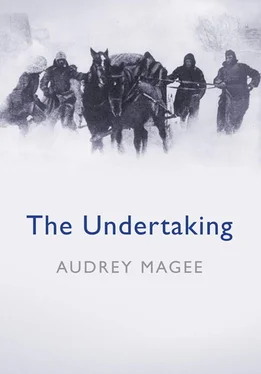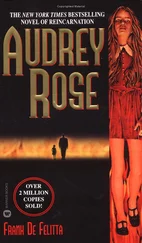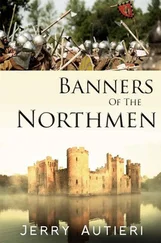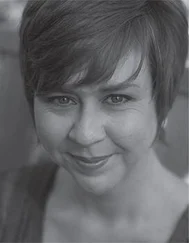‘I have the same robe as you. Joachim gave it to me.’
‘You do? Oh, yes, of course you do.’
The Weinarts’ chauffeur took them back to the east side of the city, the car loaded with a cot, blankets, clothes and food. Katharina met Mrs Sachs in the hall, pulling on her gloves.
‘You’re being looked after.’
‘We are, Mrs Sachs.’
‘You won’t need me, then.’
‘I suppose not, but thank you for this morning.’
She put the food into the cupboards, scrubbed the floors, sinks, toilet and bath, and made her bed, using the sheets she had shared with Peter. Johannes scurried up and down the corridor, delighted with the slip and glide of the linoleum under his knees. She made dinner, vegetable soup with chunks of meat and grey bread, and called her parents to the table.
Her father came first. He sat in his usual place. Her mother followed, still in her nightdress. She stared at the table, at her grandson sitting in the place once occupied by her son.
‘Move him from there, Katharina. Put him in your place.’
Katharina moved her son. Her mother sat down and lit a cigarette.
‘I’m not hungry.’
‘You have to eat, Mother. There might be nothing tomorrow.’
She finished her cigarette, and lifted her spoon.
‘So what was it all for, Günther? We end up back here anyway.’
‘We’ll find somewhere else soon, Esther.’
Katharina broke some bread and dipped it into her soup.
‘I won’t be moving again,’ she said. ‘I’m staying this time.’
‘Why?’ said her father. ‘The apartment is a hovel and the area is riddled with communists. They’ll despise you.’
‘Maybe they’d be right.’
‘It’s ridiculous to be here any longer than you have to, Katharina.’
‘I’m staying. It’s out of reach of the bombers.’
‘We’ll find somewhere nicer outside their range. You’ll be hated here, Katharina.’
‘I promised Peter that I would wait for him, and this is where I’ll wait.’
‘My God, Katharina.’
Her mother lit another cigarette.
‘And what about Mr Meyer?’ she said.
‘What about him?’
‘You were going to marry him.’
‘I’m already married. To Peter.’
Her mother slapped her hand against the table. Johannes startled, but didn’t cry.
‘You’re a stupid girl, Katharina. Meyer is the only one who can get you out of here. Who can get us all out.’
‘You do what you have to do, Mother. I am staying.’
‘And your son?’ said Mr Spinell.
‘My son needs his father.’
‘His father is useless to you. Find him another.’
‘He will only have one father.’
Her mother stood up.
‘You’re impossible, Katharina. Life is not the fairy tale you want it to be.’
‘I’m quite aware of that, Mother.’
The Weinarts sent him a car for his second birthday, a small red one, but there was no birthday party or cake, just Katharina and her son in the park, his feet paddling in the water, his mother holding on to him, ruffling his hair with her kisses.
Berlin, October 24th, 1944
My darling Peter,
Aachen surrendered today, my love. That beautiful cathedral in the hands of our enemies. I once spent a day in that warren of streets, and now it’s theirs. The people who want to destroy us. Humiliate us.
How must it have been, my darling, to know the Americans were coming, to sit waiting, knowing your troops were doing their best, but watching them flee, your protectors, fleeing in the face of the enemy?
I suppose that I shall find out. My father refuses to tell me anything about the Russians, but I know it is imminent. The whole city knows it.
I spend most of my days alone with our son, with barely any adult to talk to. Mrs Weinart seldom invites us to visit any more, maybe once a month, or every six weeks. She is not as sociable as she used to be, or else I am no longer welcome. Truth is hard to find these days.
I wonder who will reach us first? The Russians or the English and Americans? I think about fleeing; all day I consider my options. The truth is, my love, I have none. I have nowhere to go. No one who would want to house me and our son. The roads are already clogged and my father refuses to leave anyway. He insists that Berlin will be safe. I don’t know why he thinks that. Nowhere else is.
I squirrel away what food I can, hiding it even from my parents. I need to keep our son alive, so that you will meet him one day. Whenever that will be, I don’t know, but it will be because I know that you are alive. I know that you would not die on me. I know that, so I will keep waiting for you. Here. In this house. Where we first made love. Where we made our son.
My God, I love you. You and Johannes are all I have.
Katharina
PS I will store this letter and keep it for you. So that you know how much I missed you. How much I needed you.
He vomited as she lifted him out of his chair. She cleaned him up and laid him in his cot in fresh clothes, watching as he fell asleep. She lay down too, uncertain why she was so reluctant to leave him. He had vomited before. Eventually, she fell asleep, lightly enough to hear him yelp, to be beside him as he vomited a second time, his face flushed, his eyes glazed. She picked him up. He was limp, in some state other than sleep. She washed and dressed him, pulled on their coats and ran down onto the street and across the city, stumbling under the child’s weight because trains and taxis could no longer function. She carried him in her arms, on one hip, then on the other, wishing she had her old pram, with its excellent suspension. She ran again, but then walked, exhausted by his weight. His leadenness. She reached the doctor’s door and knocked. Mrs Weinart opened it.
‘Thank God you’re home, Mrs Weinart. It’s Johannes. He seems really sick.’
‘I’ll fetch my husband.’
They followed him to his study where he undressed her son, removing his coat, his sweater, his shirt and vest, revealing skin covered in a red rash. He examined the child’s eyes, listened to his breathing, and moved his neck backwards and forwards. The doctor sighed. He put the boy’s vest back on, buttoned his shirt and trousers. He handed Katharina the child and his sweater.
‘Katharina, it’s not good news.’
‘What do you mean?’
‘Johannes has meningitis.’
‘Thank God I brought him to you.’
‘He needs antibiotics.’
She breathed into his hair.
‘That’s fine. He can have them.’
‘I don’t have enough.’
‘Enough?’
‘No.’
‘What do you mean?’
‘I don’t have enough to give him any, Katharina.’
‘But you have some? You could give him some and make him at least a little better?’
‘Supply is very limited, Katharina. Restricted.’
‘I really don’t understand, Dr Weinart.’
‘I need it for other children.’
‘Other children?’
‘The children of senior party members. I have to keep it for them.’
‘They’re not sick. My son is sick.’
‘They might become sick and need it.’
She felt her legs sag. Mrs Weinart guided her to a chair, so soft that she could barely feel its leather.
‘You can’t do this, Dr Weinart.’
‘I’m afraid that I have to.’
She looked at the doctor, at his wife.
‘But you said he was like one of your own.’
‘He is, Katharina,’ said Dr Weinart.
‘So, give him the medicine. As you would give it to one of yours.’
‘I can’t, Katharina.’
‘Who would know?’
‘I would.’
‘So lie to yourself.’
He laughed.
Читать дальше












